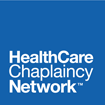Policy for Curriculum Design and Development
The Spiritual Care Association Learning Center develops courses and programs of study that reflect the values, goals, and SCA’s mission. The courses provide current, practical, evidence-based study for life-long learners engaged in the integration of beliefs and values into practice of health care, including that of professional chaplaincy and spiritual care.
- The Learning Center follows the following principles in its curricula:
- Specify clear aims and learning outcomes with explicitly aligned learning, teaching, and assessment practice, taking account of current practice in online curriculum design.
- Be consistent with national credit frameworks for continuing education hours awarded.
- Be informed by relevant and current research, knowledge and professional practice and promote learner understanding of and engagement with the research process and its application.
- Promote in learner’s enquiry-based, collaborative learning and critical thinking related their field of study.
- Develop students’ professional practice by cultivating work-related and transferable skills appropriate to their setting.
- Consider and integrate previous educational backgrounds of potential students.
- Emphasize, integrate, and expect equality and diversity.
- The Director of Education shall be responsible to the President and CEO and the Chief Operating Officer of the Spiritual Care Association for the development of curriculum to meet identified student needs. The process for curriculum development includes:
- Planning with a committee representing experts in the field addressed in the course and interdisciplinary in scope
- Assessing key issues, trends, and educational needs in the content area and field of chaplaincy and spiritual care in health care
- Defining course goals and learning outcomes
- Identifying and recruiting qualified professional subject matter experts will be recruited and overseen in the development of course content.
- Ensuring that resource materials, including written content, videos, research articles, and texts, to be integrated in courses, are relevant and current to the topic and practice
- Developing assessment activities and instruments to measure student understanding and application
- Recruiting, training, supervise, and evaluating qualified professionals teach instructor-led courses.
- Implementing the new course
- Evaluating the course
- Determining the success of the course and reporting student success rates, evaluative data.
- Oversee the regular and consistent review process of all learning center courses in light of current methodologies, theories, and materials and courses and ensuring that they are updated as necessary.
- It shall be ensured that curriculum and instruction are designed and delivered in ways that all students are able to demonstrate the knowledge and skills set out in the Quality Indicators and Scope of Practice documents through:
- Intended learning outcomes: the competencies that a student should be able to successfully articulate and demonstrate on successful completion of a course
- Assessment which gauges student achievement of the intended content
- Content that is evidence-based, current, and developed by qualified subject matter experts which meets current demands in the field of chaplaincy and the provision of spiritual care within health care
- Learning interactions between students and the material, students and peers in learning cohorts, and students and colleagues in their work setting
- It shall be insured that the learning management system is capable of providing for the needs of the courses and the students.
- The learning management system is overseen by the organization’s information technology consultant.
- Updates and adjustments to the learning management system are performed regularly in order to remain current and accessible to students and instructors
- The learning management system includes instructional adaptations for those with disabilities and limited English proficiency.

